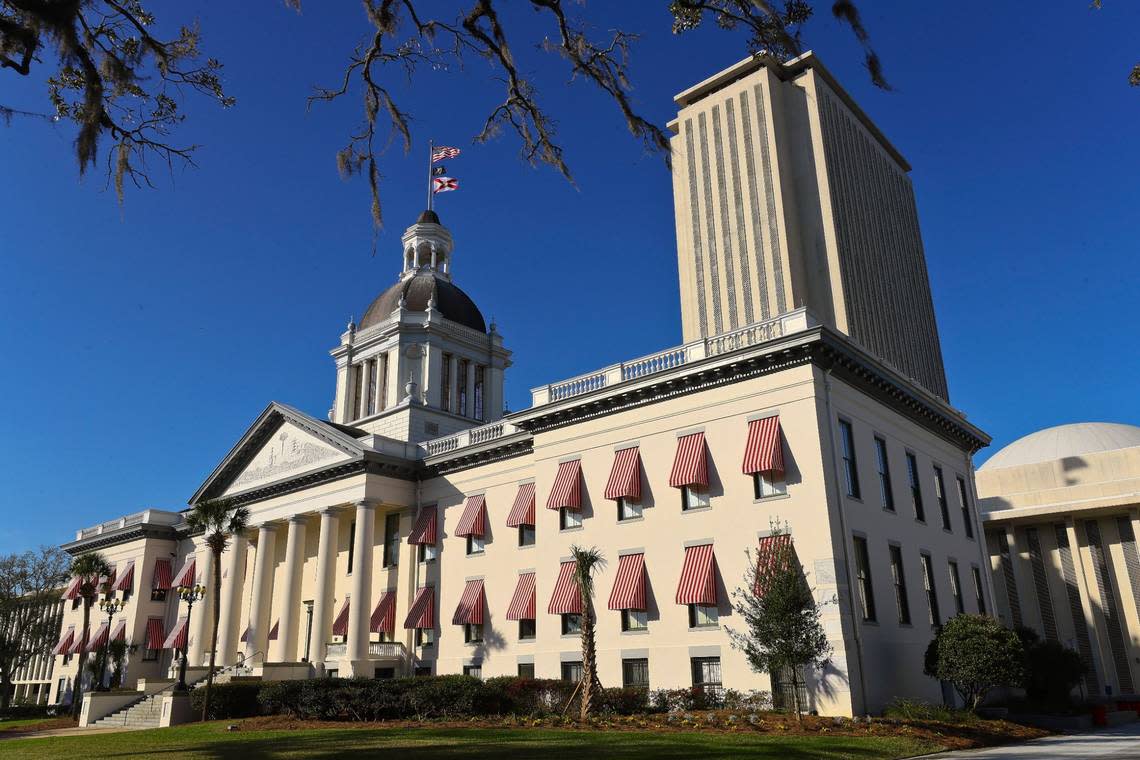Federal judge strikes down Florida’s new ban on lobbying by elected officials

A federal judge on Tuesday sided with a Miami-Dade County commissioner and a local mayor in striking down Florida’s new ban on paid lobbying by elected officials, ruling the amendment to the state Constitution was too broad and poorly defined to comply with federal protections for free speech.
The injunction issued by U.S. District Judge Beth Bloom in Miami temporarily suspends enforcement of a portion of the amendment Florida voters approved in 2018 and which took effect Jan. 1.
That portion bars officeholders from earning money in their private lives as lobbyists. One of the plaintiffs in the suit, former Miami-Dade school board member Lubby Navarro, resigned her post rather than quit her full-time job as a lobbyist for Broward’s public hospital system.
READ MORE: Florida’s expanded lobbying ban faces legal challenge. Some officials already resigned
In siding with the plaintiffs — including René Garcia, a Miami-Dade commissioner elected in 2020, and Javier Fernández, the mayor of South Miami, both former state legislators — Bloom ruled the amendment infringes on their First Amendment rights to collect money in exchange for trying to influence other elected officials.
“Today’s ruling is a great victory for all us who are defenders of the U.S. Constitution,” Garcia said in an interview. “You can’t prevent people from working.”
While Bloom said a limited ban on lobbying the governments they serve could pass the constitutional test, a blanket restriction on lobbying for any officeholder is too sweeping.
“Prohibiting Garcia from receiving money to lobby the very committee he sits on would arguably further the State’s interest of preventing quid pro quo corruption,” wrote Bloom, who was appointed to the U.S. Southern District court by Barack Obama in 2014. “However, Defendants have not shown a link between quid pro quo corruption and prohibitions against Garcia lobbying other state entities.”
Bloom also took issue with the wording of the amendment, which limits the ban to a broad definition of lobbying activities but theoretically would allow elected officials to continue lobbying if it doesn’t involve “issues of policy, appropriations or procurement.”
Garcia, a former state senator, is a vice president at the New Century Partnership, a consulting firm that he said offers lobbying services, according to the Bloom decision.
He claims the amendment will “improperly limit” his ability to be an advocate “before any government agencies,” Bloom wrote. Fernández, a lawyer and former state representative, said the amendment forced him to drop a long-time client who wanted to hire him to “negotiate a procurement matter on its behalf with another municipality.”
Kendall Coffey, a Miami lawyer representing the plaintiffs in the case against the state Commission on Ethics, said the amendment imposes an unconstitutionally broad limit on how an officeholder can make a living. “Public service is largely a part-time job,” he said.
The injunction suspends enforcement of the lobbying ban as the case makes its way to trial before Bloom. Florida can appeal the injunction. State lawyers were not immediately available for comment.
Bloom let stand the portion of the constitutional amendment that imposes a six-year lobbying ban on former elected officials that only applies to the government where they served.
Many governments already have a two-year lobbying ban for former officeholders, and the six-year ban only applies to officials leaving office after Dec. 31, 2022.
The judge ruled the plaintiffs in the case hadn’t proved their rights would be violated by a future lobbying ban.
Miami Herald staff writer Ana Ceballos contributed to this report.
